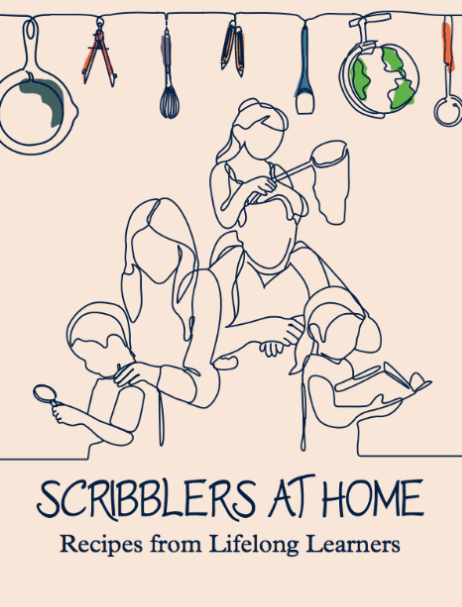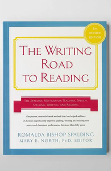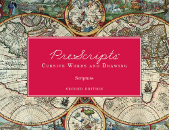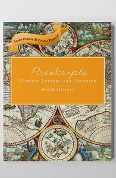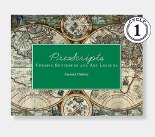The secret to successfully homeschooling your elementary-aged student lies in embracing this season as an opportunity to restore your own education while cultivating a family atmosphere that treasures learning together.
Homeschool hacks elementary families need to focus on are building relationships and wonder rather than checking boxes, creating a foundation that will serve your children for years to come.
Over the years, many families have asked us how to homeschool their elementary-school children from ages 3 to 8. This is a rich time for parents to dive into the parent resources at classicalconversationsbooks.com while establishing the rhythms and routines that make home education flourish.
Building Your Family’s Learning Atmosphere
The heart of elementary homeschool success begins with atmosphere. You’ll want to create a gentle rhythm of praying, playing, reading, working, and serving together each day.
This might look like filling your home with books and good music, enjoying both indoor and outdoor play, or curling up together with great stories. As your children grow, they can learn to contribute through simple chores around the house and join you in serving others—whether that’s running errands for an elderly neighbor, helping cook a meal for a new mom, or babysitting for friends.
Daily prayer becomes a natural part of this rhythm, and you’ll be amazed at how eagerly little ones contribute to the family prayer list. They notice needs you might miss and offer heartfelt requests that remind us all to see our community through God’s eyes.
For inspiration, read Echo in Celebration by Leigh Bortins
Essential Homeschool Tips and Tricks for Elementary Students
As your children are ready for more structured lessons, remember to keep it short and simple as you lay the groundwork for future studies. Here are proven resources that work beautifully with young learners:
Starting with Scribblers at Home
Scribblers at Home: Recipes from Lifelong Learners provides the perfect framework for families with four-to eight-year-olds. This flexible curriculum offers activities tailored to different learning styles while encouraging parents to grow in their own education alongside their children.
Key benefits include:
- Family rhythm of daily praying, playing, reading, exploring, and serving
- Activities that scale to include older siblings
- Charts showing the big picture of skill development
- Accommodation for all learning modalities
- Gentle reminders that play is childhood’s work
- Permission to build relationships as the foundation of education
Teaching Reading with Confidence
Do you need help teaching your child to read? Grab a few friends and head to the park. While the children are playing, read and discuss The Writing Road to Reading together.
For beginning readers needing phonogram practice, dive into the American Language series. The charming stories and pictures provide extensive practice with letter combinations and sounds. When your child finishes a reader, the whole family can celebrate this amazing accomplishment!
Developing Strong Writing Skills
For beginning writers needing handwriting practice with meaningful content, check out our PreScripts books.
Your littles can learn Scripture, math terms, and important events from history while practicing cursive writing. These books include delightful drawing lessons, too!
Exploring Geography Together
As you read, are you curious about where places are located on the map? Check out the Trivium at the Table placemats for geography. Draw around countries with a dry erase marker or call out locations and have your children place a small snack on them. Then they get to eat their correct answers!
Discovering God’s Creation Through Science
The Copper Lodge Library Uncle Paul series provides wonderful nature exploration for families to celebrate God’s creation through observation:
- Exploring Insects with Uncle Paul – This first volume helps families discover the wonders of insects while Uncle Paul tells stories to his nephews and nieces about the natural world.
- Exploring the Heavens with Uncle Paul – The second volume takes families outside to explore the wonders above while learning about weather, birds, and celestial bodies.
- Exploring the Ocean with Uncle Paul – The final volume invites families to discover marine life and water ecosystems through engaging stories.
Each book accompanies the Scribblers at Home curriculum, guiding parents and children into early science exploration and discovery. While the first and best way to study nature is to go outside, these readers stimulate curiosity about God’s amazing creation.
For hands-on observation, take your Nature Sketch Journal outside. Bring colored pencils or crayons and draw a picture of an earthworm, robin, or frog. Older students can use the lined paper to write sentences recording their discoveries, while parents can write down younger children’s finds.
Elementary Homeschool Routine: Creating Structure That Works
Practical Organization Tips
Based on wisdom from seasoned homeschool families, here are the top organizational strategies that create peaceful learning environments:
Storage Solutions:
- Designate a shelf for each child and at least one for mom’s resources
- Use attractive bins for memory work items, art supplies, and math manipulatives
- Keep large, clear organizing tubs with lids for science and art materials in closets
- Invest in three-ring binders for each child’s subjects to contain copywork and artwork
Learning Spaces:
- Hang shower board on the walls as affordable whiteboards
- Use adhesive cork squares with decorative borders for bulletin boards
- Keep a basket on the school table with pencils, pens, and markers
- Designate a reading spot with a laundry basket for library books
Daily Management:
- Use large dry-erase calendars to allow everyone access to the family activities
- Create laminated planning sheets for each child with general daily tasks
- Remember that routines serve you, not rule you—flexibility is key
Organizing Your Homeschool Room on the Everyday Educator podcast
Homeschool Organization for Kids: Building Sustainable Rhythms
The most effective elementary homeschool routine focuses on relationships and rhythm rather than rigid schedules. Don’t lose sight of these foundational principles:
Keep the Long View in Mind: Remember you’re raising humans for heaven, not Harvard. A perfect schedule is just one small part of what God is orchestrating in your child’s life.
First Things First: Identify your family’s highest priorities. In many families, this means:
- Relationship with God
- Family relationships
- Character development
- Academic growth
- Service to others
Body, Mind, and Soul: Effective routines consider the whole person. Schedules don’t work when children are hungry, tired, or struggling with behavior. Address physical and spiritual needs before diving into academics.
Maintain Your Mission: Consider what kind of person you hope your child will be in twenty years. Let this vision guide your daily rhythms and choices.
From Overwhelmed to Organized: Finding Peace in Your Homeschool Schedule
Making the Most of This Precious Season
This is such a rich time in your child’s life—enjoy it together! The elementary years provide a unique window for:
- Building strong family bonds
- Fostering natural curiosity
- Establishing learning rhythms
- Creating joyful memories around discovery
Remember that your role as teacher-parent during these years is less about delivering perfect lessons and more about cultivating an atmosphere where learning feels natural, exciting, and deeply connected to your family’s values and faith.
Key Takeaways for Elementary Homeschool Success
Essential Homeschool Strategies:
- Focus on building family atmosphere and relationships as the foundation for all learning.
- Use flexible, age-appropriate curricula like Scribblers at Home that accommodate different learning styles and family rhythms.
- Integrate practical life skills, character development, and academic learning through daily praying, playing, reading, and serving routines.
- Remember that effective organization and routines should serve your family rather than create additional stress. The ultimate goal is to raise children who love learning and know their Creator.
As you implement these homeschool hacks for elementary students, consider the tremendous value of connecting with other families on the same journey. Having a supportive community provides both connection and gentle accountability during these foundational years—something that can make all the difference in your homeschool success.
If you’re looking for a community that shares these values and approaches to elementary education, we’d love to have you explore what Classical Conversations offers to families just like yours.


